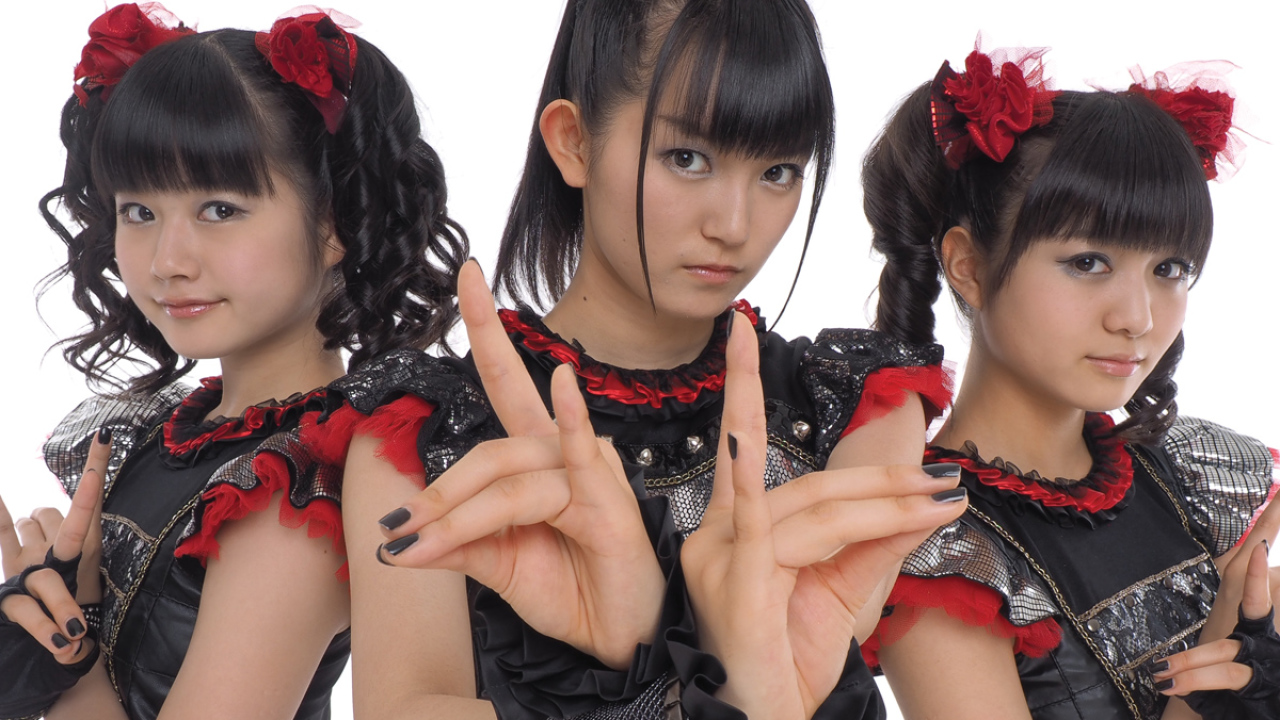There’s a new force to be reckoned with in the world of metal, and it comes in the shape of three teenage girls from Japan.
Yes, I’m talking about Babymetal. Whether you love them, hate them or simply find their whole schtick a bit confusing, the impact they’ve had since they first appeared on the Western scene early last year is undeniable. Their first full-length album, Babymetal, shot straight to number seven on both the UK Rock and Metal and Independent charts, and they won numerous awards over the following year – including Best Breakthrough at the Metal Hammer Golden Gods. They’re even gracing the cover of the latest issue of Hammer, and have reportedly had members of Metallica come to their live shows. Which leads on to the question: what do grown men, and metal fans in general, see in Babymetal?
Perhaps it’s simply that they’re a refreshing change in the macho world of rock. They’re unashamedly cute, overtly manufactured, and unlike any other act in the current metal scene. Or maybe it’s the novelty value of three girls who are ostensibly children fronting a band of big, hairy session musicians. The fact that a large proportion of their fans are older males, though, leaves some people feeling uncomfortable. Women in rock have, in past times, been positioned as eye candy, and although the days of posturing cock-rock have passed, it’s impossible not to wonder if Babymetal have been positioned, Lolita-like, as a new kind of novelty female spectacle. At best, their manager and producer Kobametal is naïve to how British attitudes would perceive them. At worst, it could be seen as a little exploitative.
Of course, I’m not suggesting that burly blokes are only into Babymetal because they fancy them – quite the opposite, in fact. In my experience, adults that do find Babymetal fascinating are just that: guys (and some women too, of course) who are intrigued by the sheer weirdness of it. It’s understandable, though, why some are uncomfortable. The juxtaposition of three baby-faced schoolgirls with the overt masculinity of metal challenges the obvious taboo of men having an interest in teenagers. It’s undeniably weird, because it feels like Babymetal are playing to the wrong audience. But they’re not there to tantalise; they’re a product of a culture that simply doesn’t exist in the Western world.
‘Idol pop’ is a huge thing in Japan, and Babymetal were born from it. In a nutshell, it’s manufactured pop artists or groups who are cute, wholesome and relatable to young fans. Think One Direction, but with added fox masks and kawaii styling. Rock has also been present in Japan since X Japan’s ‘80s heyday, but until Babymetal came along, idol pop and metal existed independently of each other. In the context of popular Japanese culture, Babymetal makes perfect sense, but they’re incongruous in the Western world. And, more to the point, why aren’t they being marketed at their own age group?
One reason could be that Kobametal always intended for his creation to be a real metal band – he’s been quoted as saying he envisaged a fusion of idol and metal genres. Another is that they fit the metal sound and aesthetic more than they do the British teen scene. Despite the fact that they supported Lady Gaga in the States, they’d be pretty out of place on the line-up of a Capital FM concert. There’s also the fact that Japanese rock, or J-rock, is breaking through into the global scene, thanks to bands like Vamps and Crossfaith. The high-speed beats and Nintendo-inspired riffs are an exciting change from the chugging roar of Western metal, and Babymetal distill every kitsch aspect of J-rock into a tutu-sporting package. It’s a genuinely interesting, if slightly baffling, spectacle.
The answer to the question of whether it’s really okay or not is cultural. Cultivating ‘idols’ from school kids and placing them in the public eye is a common, accepted part of celebrity culture in Japan. The Western world tends to raise an eyebrow at very young celebrities, questioning whether the people behind them really have their best interests at heart, and envisaging a disastrous future filled with drugs, rehab and questionable behaviour. That narrative has unfortunately played out for some child stars of Hollywood. Babymetal are on the opposite end of the spectrum in that respect; the whole point of idol culture is for the idols to be respectable, and their image is intended to be one of innocence.
So are they really a metal band? Well, technically, yes. They might not be the archetypal definition of one, but they’re pushing boundaries by blending two genres that couldn’t be more different. I’m still not convinced that those genres can exist in harmony without raising eyebrows, but they set out to do something that had never been done before, and nobody can deny they’ve achieved it.
